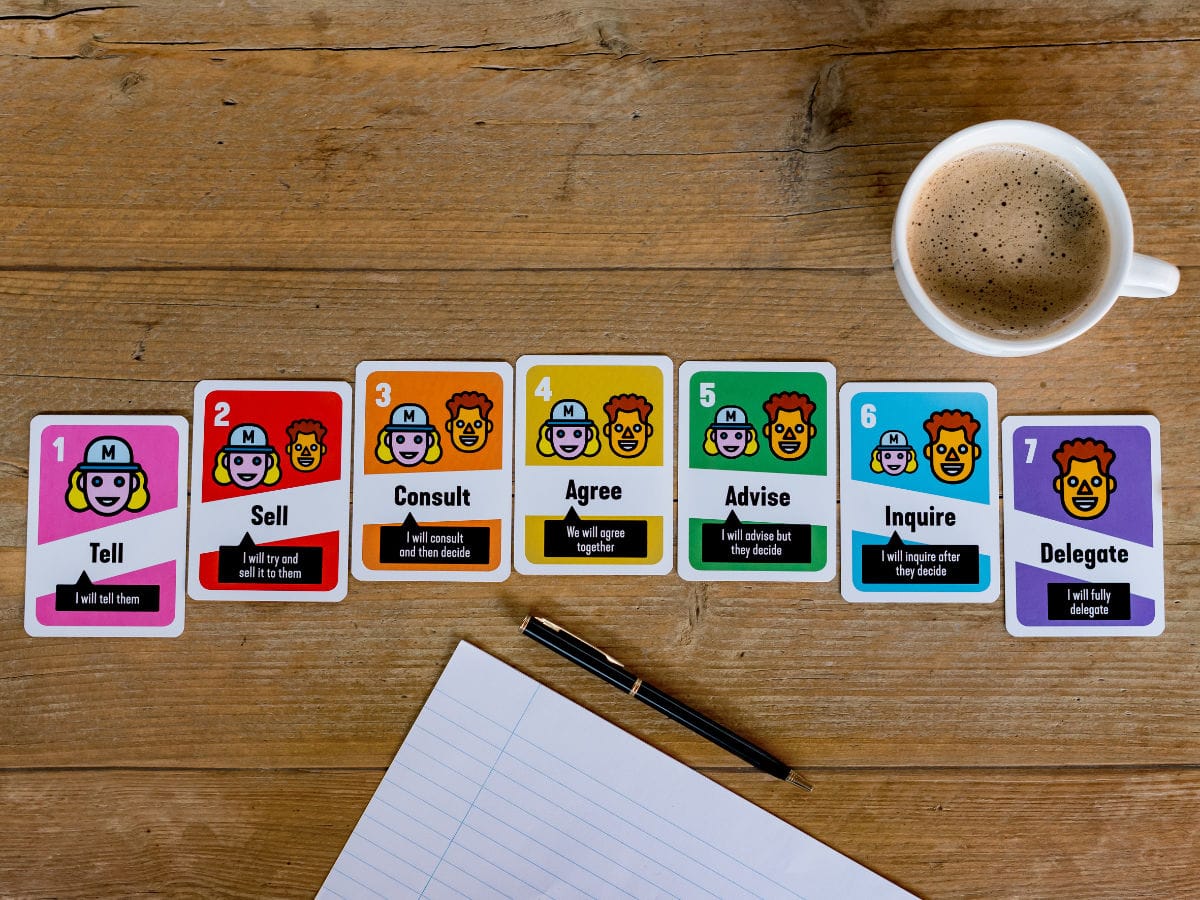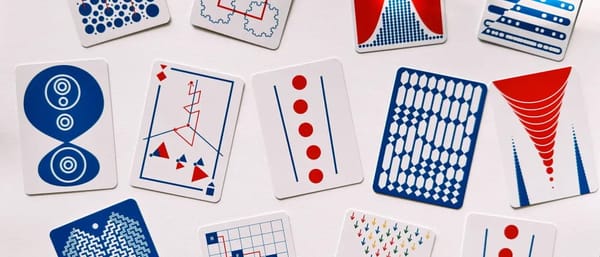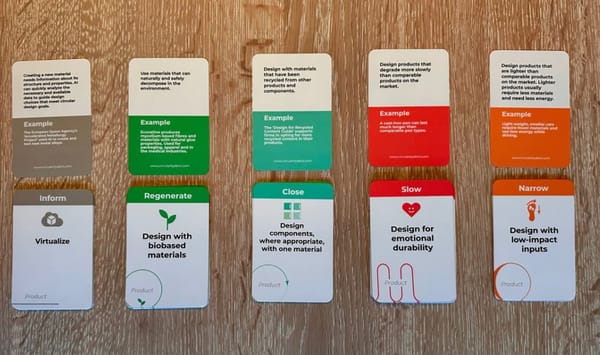№ 68 | Ace of Aces, Rewilding the Internet, Delegation Poker Cards, How to Say It Flashcards, and Three Components of Love

Ace of Aces
A few months ago, I shared a video about Edge-notched cards, a kind of queryable database...made of paper! Keeping with the theme of a paper computer, here’s a brilliant analysis of Ace of Aces, a “Choose Your Own Adventure first-person shooter from 1980… [that] involves complex mathematical algorithms and a clever interface where players control aircraft movements through paired picture books.” 🤪

I may have to re-read this post a few more times, to really grok what’s going on, but… my mind is blown. It’s amazing the kind of computation (in this case a matrix transformation from linear algebra) used to pull off a relatively straightforward “choose a page” game.
FWIW, I’ve long thought that board games—medium or heavyweight strategy games—are a kind of complex data visualization; naturally, when this post discusses a game as a “an algorithm encoding some pretty sophisticated maths,” I’m on board with that assessment!
Oh, and it looks like a reprint was recently Kickstarted, with full color illustrations! 😍
Rewilding the Internet
Frames are certainly a kind of thing to think with. “We Need To Rewild The Internet” offers a powerful frame, the simple metaphor of “rewilding” the internet. But, as the article is quick to point out:
Rewilding the internet is more than a metaphor. It’s a framework and plan. It gives us fresh eyes for the wicked problem of extraction and control, and new means and allies to fix it. It recognizes that ending internet monopolies isn’t just an intellectual problem. It’s an emotional one. It answers questions like how do we keep going when the monopolies have more money and power? How do we act collectively when they suborn our community spaces, funding and networks? And how do we communicate to our allies what fixing it will look and feel like?
Fantastic article. Highly recommended.

Delegation Poker Cards
You might have learned, “delegation” is a loaded word, which is why I get excited by articles that poke at what is actually meant by delegation (see [1], [2], [3]).
Consequently, I was already primed for the Delegation Poker Cards, a simple 7 deck card deck that teams can use to clarify not only “who does what, but to what extent does the decision-making power lie with each teammate, dependent upon the task or project.”

This might pair well with another delegation card deck, more reflection oriented, on the topic: Delegate Now! Working With Others To Get Tasks Done
[Sidenote: I like this for another reason. I’ve not seen any cards quite like these that use the visual of the curved band to reinforce card sequence!]
Speaking of card decks…
How to Say It Flashcards
How to Say It: Flashcards for Professional Communication will be on Kickstarter for another week or so. Just glancing at the pictures, it looks like solid content to help you “know what to say in every professional situation.” Themes include teamwork, meetings, interviews, and relationships. Bonus: Each card directs you to a companion video for more details.

Three Components of Love
This visual over on Reddit caught my eye—for the form (you don’t see triangle visualizations like this very often) and also the content:

From the comments, I learned this is A legit theory—Sternberg's Triangular Theory of Love—which suggest 8 kinds of love based on three components:
Intimacy: the closeness each partner feels to the other and the strength of the bond that binds them together. Partners high in intimacy like value and understand their partners.Passion: based on romantic feelings, physical attraction, and sexual intimacy with the partner.Decision/Commitment: represents cognitive factors such as acknowledging that one is in love and committed to maintaining the relationship.
Anyway, I found this ‘small multiples’ visual far clearer than the single triangle visual used in the linked article. File under: Visual things to think with. And think about.
***Bonus 1: 20 Functional LOCKS made out of LEGO bricks!
***Bonus 2: We All Take from the River is “a 1-5 player board game of environmental policy, inspired by real river ecosystems. You play as a camp on the river with great plans for the future.”






